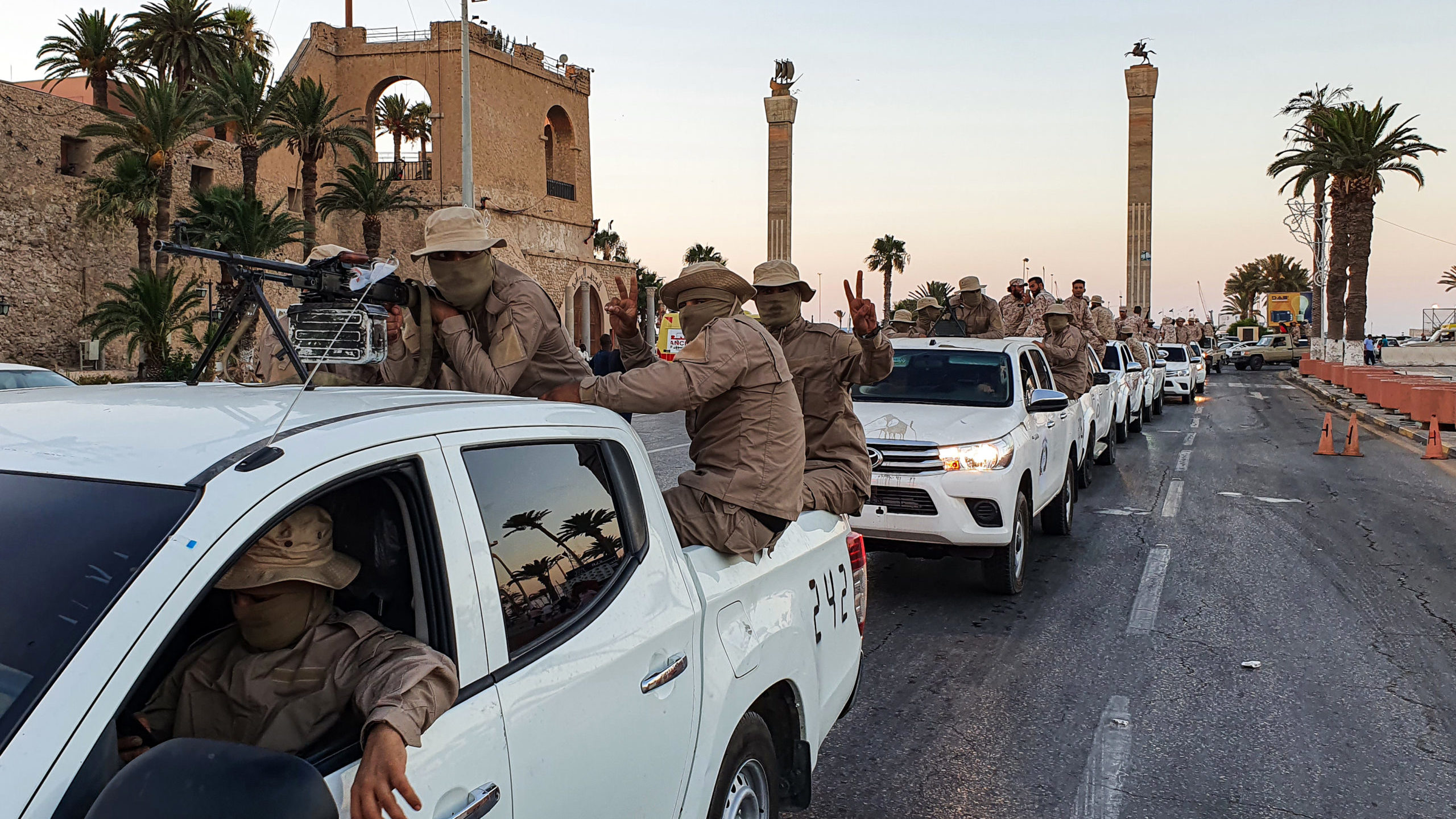Haftar Supporters Want Egypt to Intervene in Libya
Experts say it’s a difficult call, as Cairo has plenty of problems elsewhere
Parliamentarians with ties to the self-styled Libyan National Army (LNA) have called for the Egyptian military to intervene in Libya’s civil war to confront the “direct threat” posed to both North African neighbors by what they call “the Turkish occupation.”
Last month, Egyptian President Abdel Fattah el-Sisi vowed to directly get involved if necessary.
Egypt, together with the United Arab Emirates and Russia, supports the eastern-based LNA, led by renegade Field Marshal Khalifa Haftar. Turkey and Qatar have lined up behind the UN-backed Government of National Accord (GNA), based in the capital Tripoli and led by Fayez al-Sarraj.
The sides have been locked in a civil war since 2014, the country being unable to settle on a unified leadership in the wake of the 2011 revolution that overthrew strongman Muammar Gaddafi. Haftar rejected a power-sharing agreement and withdrew to the oil-rich east, taking with him entire military units.
After Sisi declared his country’s readiness to directly intervene, some analysts expressed skepticism.
Yusuf Erim, chief political and Middle East analyst for TRT, the national public broadcaster of Turkey, told The Media Line that Egypt would not intervene with its army in Libya, as Sisi would not risk a military humiliation.
“It would have a very negative impact for him domestically,” he said, adding: “I think [the call for intervention is designed] to create the perception that Egypt could militarily intervene.”
Erim suggests that if Egyptian units do cross the Libyan border, the operation will be limited in scope.
“I don’t expect any type of Egyptian intervention that would shift the balance or change realities on the ground,” he said.
I don’t expect any type of Egyptian intervention that would shift the balance or change realities on the ground
The Libyan army, which is affiliated with the GNA, recently reported military supplies from Egypt arriving in the eastern city of Tobruk, publishing a photo of transport vehicles it said were meant for carrying weapons and ammunition.
Ahmed Sewehli, a UK-based Libyan analyst and activist, told The Media Line that if Haftar was asking for Cairo’s help, the UAE was behind the request.
“Everyone knows that,” he said.
Sewehli claims that the UAE is pulling the strings and insists that Haftar and Sisi do not make the decisions on such matters.
“The UAE can’t put forces in the field, so it uses Egypt instead, as it sees the country as a massive source of mercenaries,” he said.
The UAE can’t put forces in the field, so it uses Egypt instead, as it sees the country as a massive source of mercenaries
He explained that Egypt, a poor country with a huge population, has been eyeing the riches of Libya, a large country with a relatively few people.
“I wouldn’t be surprised if there was a long-term goal of… getting some of that wealth,” he continued. “A number of times, Egyptian analysts who are pro-Sisi have said that [Libyan oil and gas] is Egypt’s wealth and that the east of Libya is actually part of Egypt, and things like that.”
In his estimation, though, Sisi is chiefly concerned with self-preservation.
“Whatever Sisi might do, he will do it if it’s something that consolidates his power in Egypt,” Sewehli said. “If it is something that might undermine his power, he will not do it. That’s what he will be waiting to see, not whether it’s in the interest of Egypt or in the interest of Libya.”
According to their statement, the Libyan lawmakers’ call for Egyptian intervention came “in light of the blatant Turkish interference that our country is subjected to, and the violation of Libyan sovereignty [taking place] with the support of the armed militias controlling the west of the country and the de facto authority [the GNA] that is subject to them.”
On June 4, the GNA regained control of Tripoli International Airport from the LNA. This came two weeks after the latter pulled its troops out of sections of Tripoli, the nation’s largest city.
The GNA’s victories have been credited in great measure to the help of Turkey, as well as Syrian mercenaries Ankara and Doha reportedly brought in. Those victories are seen as having greatly weakened Haftar’s forces.
Salem Abu Khazan, a political analyst and writer for the Fasana Libyan newspaper, told The Media Line that both the Libyan parliament in the east and the GNA had lost their legitimacy, as the House’s term had expired.
“Both bodies are de facto governments only,” he explained. “They have lost their people’s trust and respect.”
Abu Khazan also notes that Cairo is facing tensions on three other fronts: in Sinai to the east, from terrorist organizations; in Ethiopia to the south, with regard to the Ethiopian Grand Renaissance Dam, which will divert some of the Nile’s headwaters; and in the Mediterranean to the north, directly from Turkey.
In addition, Egypt is facing an internal threat from the Muslim Brotherhood.
“If the Egyptians intervene in Libya, they will be in a very difficult situation, being dragged into international and regional power games,” he said.
If the Egyptians intervene in Libya, they will be in a very difficult situation, being dragged into international and regional power games
“Haftar has lost on the ground, where the Turkish power is significant,” he added. “It’s a huge regional power that operates with a green light from the US because of the Russian presence in the country.”
Abu Khazan also points to what he calls Haftar’s “stupidity” in the western region of Libya, specifically his “random” withdrawal from key areas there, such as the strategic al-Watiya military air base, located 78 miles southwest of Tripoli.
“Haftar’s repeated withdrawals…,” he said, “have left the region open and lost [him] people’s trust and support.”


